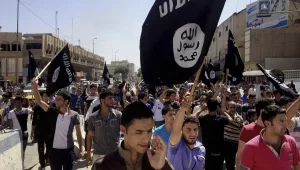Note
The attached .pdf version contains several charts.
Military preparations to retake Mosul, the second biggest city in Iraq, are almost done, and no one in Baghdad or Washington has any doubt that these next maneuvers will eradicate ISIS's Iraqi reign. But the question is, then what? Are the West and Iraq prepared to fill the power vacuum the fall of ISIS will leave behind? Unlike Syria, the Sunni Iraqis welcomed ISIS and considered them a liberating force. So how can coalition forces ensure post-ISIS civilians will not desperately need another "liberation" soon after this operation?
A good place to start might be to find out why Sunni Iraqis welcomed ISIS in the first place. In other words, what did ISIS do right? We decided to find out by asking the people who showed little resistance to ISIS expansion in 2014. Some interesting factors about ISIS's effectiveness came to light by asking very basic questions to a random sample of 200 Sunni Muslims in Qara Tapah and Jalawla—two sub-districts in the northern Diyala governorate, which partially fell under ISIS control in 2014.
First, what did ISIS get right?
It is no secret that after U.S. intervention, Sunni Muslims were unhappy with the Shia-dominated central government in Baghdad. Many thought the government incompetent, and some even considered it to be the root cause of the problems. So to win the hearts and minds of Iraqi Sunnis, the first things ISIS fixed were the justice system and security situation. Immediately after taking territory, ISIS established a hardline policing and court system, one where justice was swift, one where a person would quickly have their hand removed (via sword) for stealing. In this way, ISIS was able to instill order into a previously chaotic situation.
ISIS is also credited for reducing security-related bureaucracy. For example, pre-ISIS Iraqi Army and Police checkpoints were considered excessive in number and were manned by disrespectful and rude personal. Locals had found it very annoying to spend at least 5–10 minutes under the hot Iraqi sun at each checkpoint between towns. "To travel from Qara Tapah to Diyala," said Azada Rash, a local taxi driver, "took almost 2 hours when it was just 1 hour and 20 minutes before checkpoints were installed. And sometimes, people could not even use the road because of security concerns and criminal gangs."
Though the Sunnis believe ISIS did a great deal to ensure internal security, they also believe ISIS is to blame for massive destruction of property and many civilian deaths because of the war. Despite a very high ranking on security achievements, only a quarter of people surveyed think personal and property security were better under ISIS (than under the former regime). However, almost the same percentage of people strongly disagreed.
Compared to other terrorist groups and even legitimate governments around the world, ISIS has done fairly well with security policies in the area (at least better than the Baghdad government). However, that is not the case when it comes to other public concerns. Subsidies the Baghdad government had provided, such as pesticides, promptly halted with the takeover of ISIS, and other services, such as schools, and medicine for public hospitals, remained closed as they had been under the previous rule.
In general, the locals perceive the economy to be worse under ISIS. The biggest issue has been trade isolation. Farmers cannot sell their products—wheat, potatoes, and sheep meat—which is a serious issue for the mostly agricultural region. If the government was buying agricultural produce in the region to distribute it to people in need previously, this major buyer was now off limits to farmers. Locals also were not able to buy imports, so some products like cooking gas are not even available while prices for other products have more than tripled. Soon after ISIS took the territories, baby formula, which sold for $3.50 per can in government-controlled territories, climbed to $14 per can and obtaining it meant dealing with smugglers. The bad economy is even affecting the marriage rate. Because Iraqi culture requires a man to have a good job before he can propose to a woman, the bad economy has meant many young people cannot marry and start families. How much economic woe is caused by ISIS policies and how much is caused by outside sanctions is unclear, but it is crystal clear that ISIS has neither the means nor inclination to remedy it. Even in places where they had been paying schoolteachers' salaries, it was not an adequate compensation and paid only sporadically. So what lessons have the rise and impending fall of ISIS taught us?
The main take away point is that ISIS did a great job of gaining public support by beefing up the justice system and dealing with security issues. They got very good scores on their own policies related to internal governance. The results of our survey made ISIS look pretty good among locals even though the survey was conducted after ISIS had committed atrocities and a reconquering of their territory by Kurdish forces. This means actual attitudes toward ISIS could be even more positive than those reported in the survey. ISIS, however, was also the cause of the war and trade sanctions, both devastating blows to the economy and social aspects of those societies.
So what have we learned? That after the upcoming Mosul operation, the incoming government—whoever that may be—better do at least as well as ISIS did with security issues, crime, and justice. They also need to be prepared to right the sinking economic ship, some of which (sanctions) should automatically disappear post ISIS.
Enikolopov, Ruben, Vera Mironova, and Mohammed Hussein. "What ISIS Can Teach Policymakers." Belfer Center for Science and International Affairs, Harvard Kennedy School, October 21, 2016.




